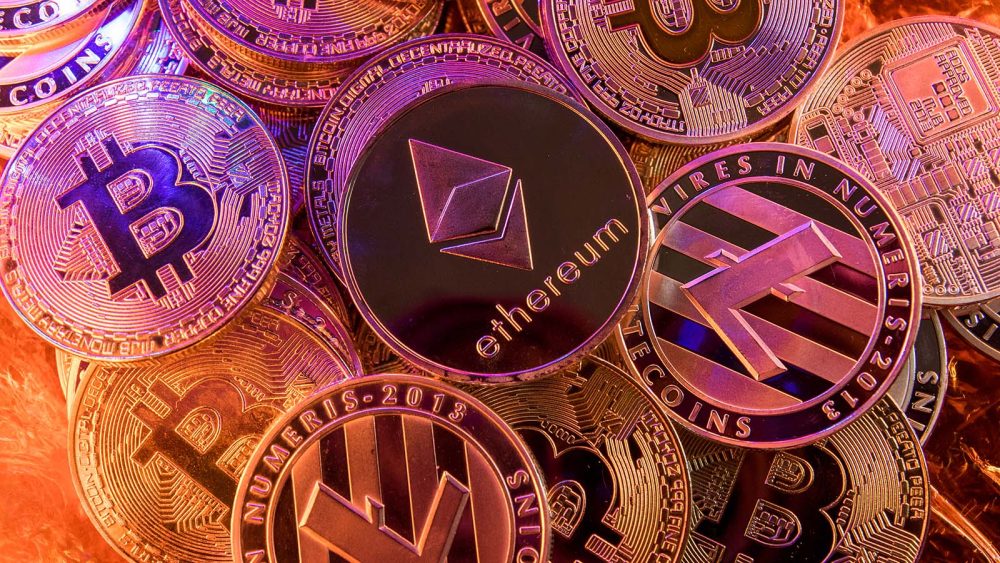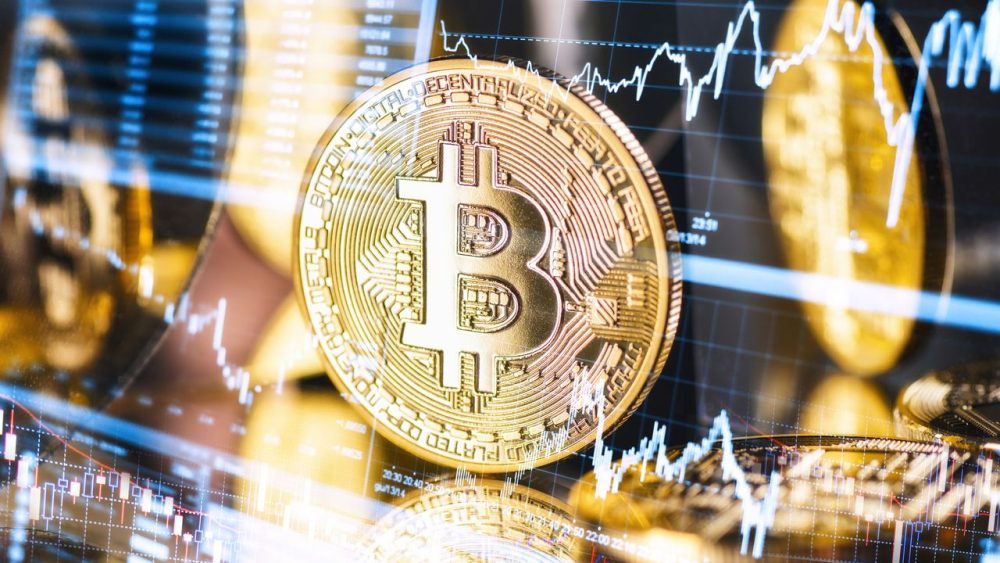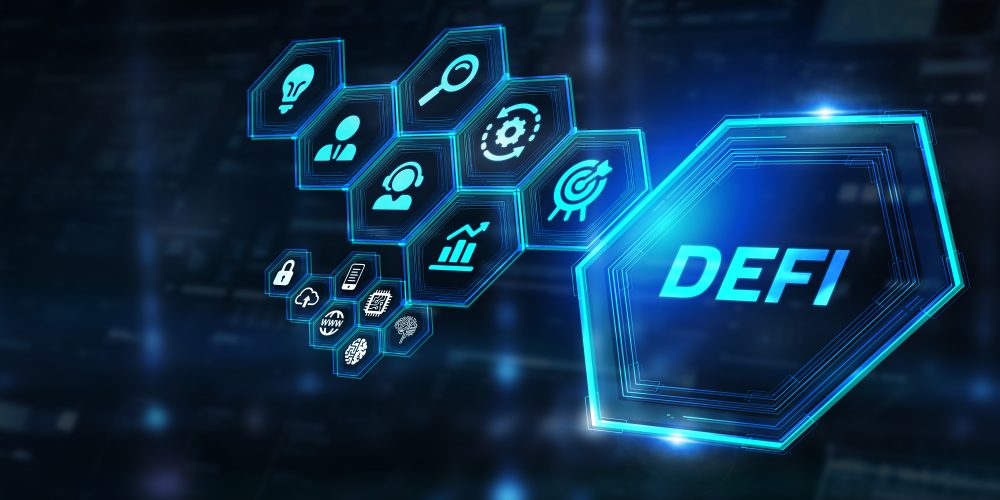In recent years, digital currencies have captured the attention of millions worldwide, revolutionizing the way we think about money, transactions, and the very concept of value. Whether you’re a curious beginner or a seasoned investor, understanding the essential crypto concepts is the key to navigating this exciting frontier with confidence.
In this blog post, we’ll take you on a friendly and informative journey through the fundamental terms and concepts that underpin the captivating realm of cryptocurrencies. From the revolutionary blockchain technology to the intricacies of wallets and private keys, we’ve got you covered! By the end of this guide, you’ll be equipped with the knowledge needed to speak fluently about crypto and engage in the ever-evolving digital asset landscape.
While the world of cryptocurrencies may seem intimidating at first glance, fear not! Our aim is to break down complex concepts into easily digestible explanations, ensuring that everyone, regardless of their background, can grasp the essentials. Whether you’re planning to dip your toes into the crypto market or merely seeking to expand your knowledge, we’ve got something for you!
So, buckle up and get ready to explore the crypto basics that will empower you to make informed decisions and navigate the exciting opportunities that await in this decentralized and dynamic ecosystem. Let’s get started!

Cryptocurrency: A digital or virtual currency that uses cryptography for security. It operates independently of a central authority, such as a government or financial institution.
Blockchain: The underlying technology of most cryptocurrencies. It’s a decentralized, distributed ledger that records all transactions across a network of computers. Each block contains a set of transactions, and they are linked together in chronological order.
Wallet: A software or hardware tool that allows users to store, send, and receive cryptocurrencies. It generates and stores private and public keys, which are essential for secure transactions.
Private Key: A unique and secret alphanumeric code that grants access to a cryptocurrency wallet. It should be kept secure, as anyone with access to the private key can control the associated funds.
Public Key: A cryptographic address derived from the private key that allows others to send cryptocurrencies to a specific wallet.
Decentralization: The distribution of control and data across a network of participants, ensuring no central authority has complete control over the system.
Mining: The process of validating and adding new transactions to the blockchain, typically done by powerful computers solving complex mathematical puzzles.
Consensus: The mechanism used by a blockchain network to achieve agreement on the state of the ledger. Common consensus algorithms include Proof of Work (PoW) and Proof of Stake (PoS).
Altcoin: Any cryptocurrency other than Bitcoin. The term “alt” stands for an alternative.
Fork: A split in the blockchain that creates two separate versions of the same cryptocurrency. Forks can be either hard forks or soft forks, depending on the extent of the changes made.
ICO (Initial Coin Offering): An early-stage fundraising method in which new cryptocurrencies sell their underlying tokens to investors in exchange for funds.
HODL: A term derived from a misspelling of “hold,” indicating a strategy of holding onto cryptocurrencies rather than selling them.
FOMO (Fear of Missing Out): The anxiety that someone else is making a profit, leading to the fear of missing out on potential gains, prompting impulsive decisions in the crypto market.
FUD (Fear, Uncertainty, Doubt): The spread of negative information or rumors in the crypto community to induce fear and uncertainty among investors.
Smart Contracts: Self-executing contracts with the terms directly written into lines of code. They automatically execute when predetermined conditions are met.

Token: A unit of value or utility on a blockchain, often representing an asset or a specific use within a decentralized application (DApp).
DApp (Decentralized Application): An application that operates on a decentralized network, typically a blockchain. Unlike traditional apps, DApps don’t rely on a central authority.
Gas: The unit used to measure the computational effort required to execute a transaction or smart contract on the Ethereum blockchain. Gas fees are paid in Ether (ETH).
Address: A unique identifier used to send and receive cryptocurrencies. It is a combination of letters and numbers.
Exchange: A platform where users can buy, sell, and trade cryptocurrencies for other digital assets or fiat currencies.
Market Cap: The total value of a cryptocurrency, calculated by multiplying the current price by the total supply of coins in circulation.
ATH (All-Time High): The highest price ever reached by a cryptocurrency in its trading history.
Bear Market: A prolonged period of declining prices in the cryptocurrency market, characterized by investor pessimism.
Bull Market: A prolonged period of rising prices in the cryptocurrency market, characterized by investor optimism.
Whale: An individual or entity that holds a large amount of cryptocurrency. Whales have the potential to influence the market due to their significant holdings.
Fiat Currency: Traditional government-issued currencies like the US Dollar (USD) or Euro (EUR), which are not backed by a physical commodity but rather by the trust in the issuing government.
Liquidity: The ease with which a cryptocurrency can be bought or sold without significantly affecting its price.
Whitepaper: A technical document that outlines the concept, technology, and purpose of a cryptocurrency project. It is usually published by the project’s creators before launching.
Mining Pool: A group of miners who combine their computing power to increase the chances of earning rewards from mining.
Cold Storage: A method of storing cryptocurrencies offline, away from internet-connected devices, to enhance security.
Node: A computer connected to a blockchain network that helps maintain the network’s integrity by validating transactions and blocks.
Smart Contract Platform: A blockchain platform that supports the development and execution of smart contracts, such as Ethereum, Binance Smart Chain, and Cardano.
Stablecoin: A type of cryptocurrency designed to maintain a stable value, often pegged to a fiat currency like the US Dollar.
Cryptojacking: Unauthorized use of someone’s computer or device to mine cryptocurrencies without their knowledge or consent.
DYOR (Do Your Own Research): A reminder to conduct thorough research before making investment decisions in the crypto space.

After the basic terms, let’s delve a little deeper into two more topics. First, let’s get into the NFTs.
NFT1s refer to the first version of Non-Fungible Token (NFT) standards, which were established to ensure interoperability and consistency across various NFT platforms. NFTs are unique digital assets that represent ownership or proof of authenticity of a specific item, artwork, or collectible on a blockchain.
Here are some terms commonly associated with NFTs and their ecosystem:
Non-Fungible Token (NFT): A unique digital token that represents ownership of a specific asset or piece of content, such as art, music, virtual real estate, collectibles, and more.
ERC-721: The first widely adopted NFT standard on the Ethereum blockchain. It defines the basic functionality and metadata required for creating NFTs.
Metadata: Additional information associated with an NFT, such as the name of the asset, its description, creator’s details, and image or video representations.
Token ID: A unique identifier assigned to each NFT within a collection. It distinguishes one NFT from another.
Smart Contract: Self-executing code deployed on the blockchain that defines the rules and functionalities of an NFT, including its creation, ownership, and transfer.
Blockchain Interoperability: The ability of NFTs to be transferred and used across multiple blockchain networks.
IPFS (InterPlanetary File System): A decentralized file storage system used to store NFT media files and metadata to ensure permanence and decentralization.
Minting: The process of creating a new NFT and assigning it a unique identity and metadata.
Gas Fees: The transaction fees paid in cryptocurrency to execute functions on the blockchain, such as minting or transferring NFTs.
Royalties: A percentage of each resale or transfer of an NFT that goes to the original creator as a commission.
Marketplace: An online platform where users can buy, sell, and trade NFTs with each other.
OpenSea: One of the most popular NFT marketplaces, allowing users to browse, buy, and sell a wide range of NFTs.
Rarible: Another prominent NFT marketplace known for its focus on user-generated content and governance.
Gasless Transactions: A mechanism that enables users to perform NFT transactions without paying gas fees by using layer-2 solutions or other off-chain methods.
DAO (Decentralized Autonomous Organization): A community-governed organization that operates based on smart contracts and blockchain technology, often used for NFT projects to allow community involvement and decision-making.
Wrapped NFTs: NFTs that are tokenized on a different blockchain to enable their use and representation across various blockchain networks.
PFP (Profile Picture): A popular use case for NFTs, where users set unique NFTs as their profile pictures or avatars on social media platforms.
NFTs have gained significant attention in the art, gaming, and entertainment industries, opening up new opportunities for creators, collectors, and investors. As the NFT space continues to grow and evolve, new standards and innovative use cases are likely to emerge. Understanding these terms will help you navigate the exciting world of NFTs and participate in this transformative digital economy.

DeFi (Decentralized Finance) is a rapidly expanding sector within the cryptocurrency space, providing innovative financial services without the need for traditional intermediaries. Here are some DeFi basics and key terms to help you understand this revolutionary ecosystem:
Decentralized Finance (DeFi): A set of financial services, applications, and protocols built on blockchain technology that aims to remove intermediaries and provide open, permissionless access to financial products.
Smart Contract: Self-executing code on the blockchain that automatically executes the terms of a financial agreement when predefined conditions are met. DeFi protocols heavily rely on smart contracts to automate various financial processes.
Liquidity Pool: A pool of funds provided by users to facilitate trading and liquidity within a decentralized exchange (DEX) or lending platform. Liquidity providers earn rewards for contributing to the pool.
Automated Market Maker (AMM): A type of decentralized exchange that relies on algorithms and liquidity pools to facilitate trades, eliminating the need for order books and traditional market-making.
Yield Farming: The practice of staking or providing liquidity to DeFi protocols to earn rewards or interest. Users can farm yields by participating in various DeFi projects.
Staking: Locking up funds in a blockchain network or DeFi platform to support its operations, secure the network, and receive rewards in return.
Flash Loan: A type of DeFi loan that allows borrowers to borrow funds without collateral as long as they repay the loan within the same transaction. Flash loans are typically used for arbitrage opportunities.
Collateralized Debt Position (CDP): A mechanism in which users lock up their digital assets as collateral to generate stablecoins or borrow other cryptocurrencies.
Token Swap: An exchange of one cryptocurrency token for another, often facilitated by automated market makers in decentralized exchanges.
DEX (Decentralized Exchange): An exchange that operates on a decentralized network, allowing users to trade cryptocurrencies directly from their wallets without the need for a central authority.
Synthetic Assets: Tokens that represent the value of real-world assets, allowing exposure to traditional financial instruments without direct ownership.
Governance Token: Tokens that give holders the right to participate in the decision-making process of a DeFi protocol, including voting on proposals and protocol upgrades.
DEX Aggregator: A service that combines liquidity from multiple decentralized exchanges to provide users with the best price for their trades.
Oracles: External data feeds that provide real-world information to smart contracts, enabling DeFi protocols to interact with external data, such as price feeds.
Impermanent Loss: A temporary loss experienced by liquidity providers due to volatility in the prices of assets within a liquidity pool compared to simply holding the assets.
Rug Pull: A malicious act where the creators of a DeFi project suddenly withdraw liquidity or funds, leaving investors with worthless tokens.
DeFi has seen tremendous growth and innovation, bringing accessible financial services to people worldwide. As the DeFi landscape evolves, new concepts and protocols continue to emerge, revolutionizing the traditional financial industry. Remember to do your research and exercise caution when participating in DeFi projects, as the space can carry certain risks.

AMG is a decentralized autonomous organization, bridging the gap between players and web3 game developers, bringing the next billion users into the metaverse.
AMG acquires non-fungible tokens (NFTs) used in blockchain-based games and acts as a trusted party advocating for games in the metaverse, thus bringing more people in.
We are leveraging strong partnerships with games developers and Yield Guild Games to launch our organization to the forefront of the Central/Eastern European gaming market.
AMG DAO has been building a game-focused crypto wallet, guild management, and other tools to keep contributing to the ecosystem, in order to aid the creation of games with sustainable economies.
AMG DAO Social Media Links:
Lorem ipsum dolor sit amet, consectetur adipiscing elit. Ut elit tellus, luctus nec ullamcorper mattis, pulvinar dapibus leo.